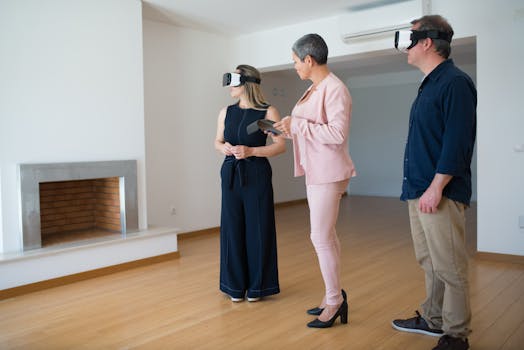
Smart Homes and Smart Living: The Technological Transformation of European Homes by 2025
Smart Homes and Smart Living are revolutionizing the way we live, work, and interact with our living spaces. By 2025, European homes are expected to undergo a significant technological transformation, making our lives easier, more convenient, and sustainable. In this article, we will explore the current trends, future predictions, and the impact of smart homes on European society.
Current Trends in Smart Homes
The concept of smart homes has been around for decades, but it’s only in recent years that we’ve seen a significant surge in adoption. According to a report by Statista, the global smart home market is expected to reach $146 billion by 2025, with Europe being one of the leading regions. Currently, smart homes in Europe are equipped with devices such as thermostats, lighting systems, security cameras, and voice assistants, which can be controlled remotely through smartphones or tablets.
Future Predictions for Smart Homes
By 2025, we can expect to see even more advanced technologies integrated into our homes. Some of the predicted trends include:
- Increased use of artificial intelligence (AI) and machine learning (ML) to optimize energy consumption, predict maintenance needs, and enhance home security
- Widespread adoption of the Internet of Things (IoT) to connect and control multiple devices seamlessly
- Integration of voice assistants with other smart devices to create a more intuitive and hands-free experience
- Growing focus on sustainability and energy efficiency, with smart homes incorporating renewable energy sources and reducing waste
The Impact of Smart Homes on European Society
The transformation of European homes into smart homes will have a significant impact on society. Some of the benefits include:
- Increased convenience and comfort, with smart devices learning and adapting to our habits and preferences
- Improved energy efficiency and reduced carbon footprint, contributing to a more sustainable future
- Enhanced home security, with advanced surveillance systems and smart locks
- New business opportunities and job creation in the smart home industry
Challenges and Limitations
While the future of smart homes looks promising, there are also challenges and limitations to consider. Some of the concerns include:
- Data privacy and security, with the risk of hacking and unauthorized access to personal data
- High upfront costs, making smart homes inaccessible to low-income households
- Dependence on technology, which can lead to increased stress and decreased face-to-face interaction
- Need for standardization and interoperability between different devices and systems






